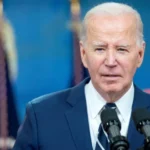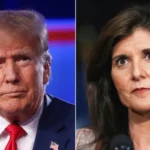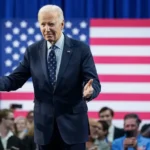
Published September 18, 2023
Shortly after Mitt Romney announced last week that he will retire from the Senate, it emerged that the Utah Republican had discussed establishing a new centrist political party with Democratic Sen. Joe Manchin III (W.Va.). That effort would likely fail for a simple reason: The public wouldn’t buy the type of centrism they are selling.
Romney and Manchin come from two different parties, but they share a similar approach to politics: Both are untethered to a fixed set of ideas. While Romney has an attachment to entrepreneurial capitalism and Manchin retains his lifelong affection for the working class, neither could ever be mistaken for someone who would die on any philosophical hill.
This expresses itself in a couple of ways. Inside the confines of the Senate, both have been willing to make deals with opposing parties. That allowed them — along with a few other similarly minded colleagues, such as Alaska Republican Lisa Murkowski and Arizona’s Democrat-turned-independent Kyrsten Sinema — to emerge as the fulcrum in the last Congress. They, not their parties’ leaders, ultimately decided what passed the higher chamber.
Click here to continue reading.
Henry Olsen is a Washington Post columnist and senior fellow at the Ethics and Public Policy Center. He was the Thomas W. Smith distinguished scholar in residence at Arizona State University for the winter/spring 2023 semester.
Henry Olsen, a senior fellow at the Ethics and Public Policy Center, studies and provides commentary on American politics. His work focuses on how America’s political order is being upended by populist challenges, from the left and the right. He also studies populism’s impact in other democracies in the developed world.












